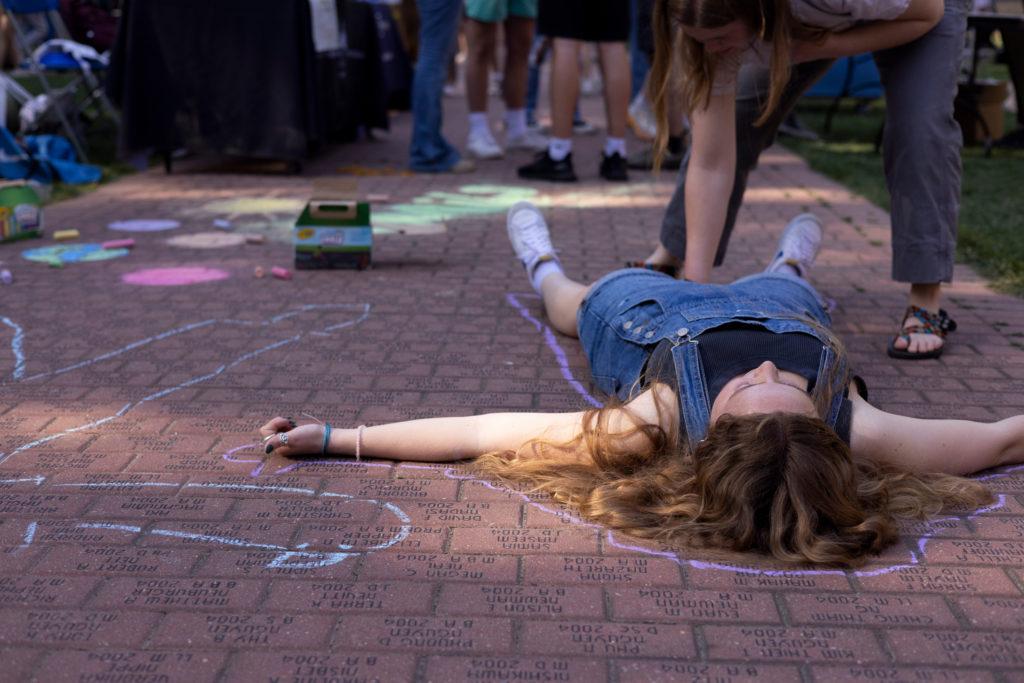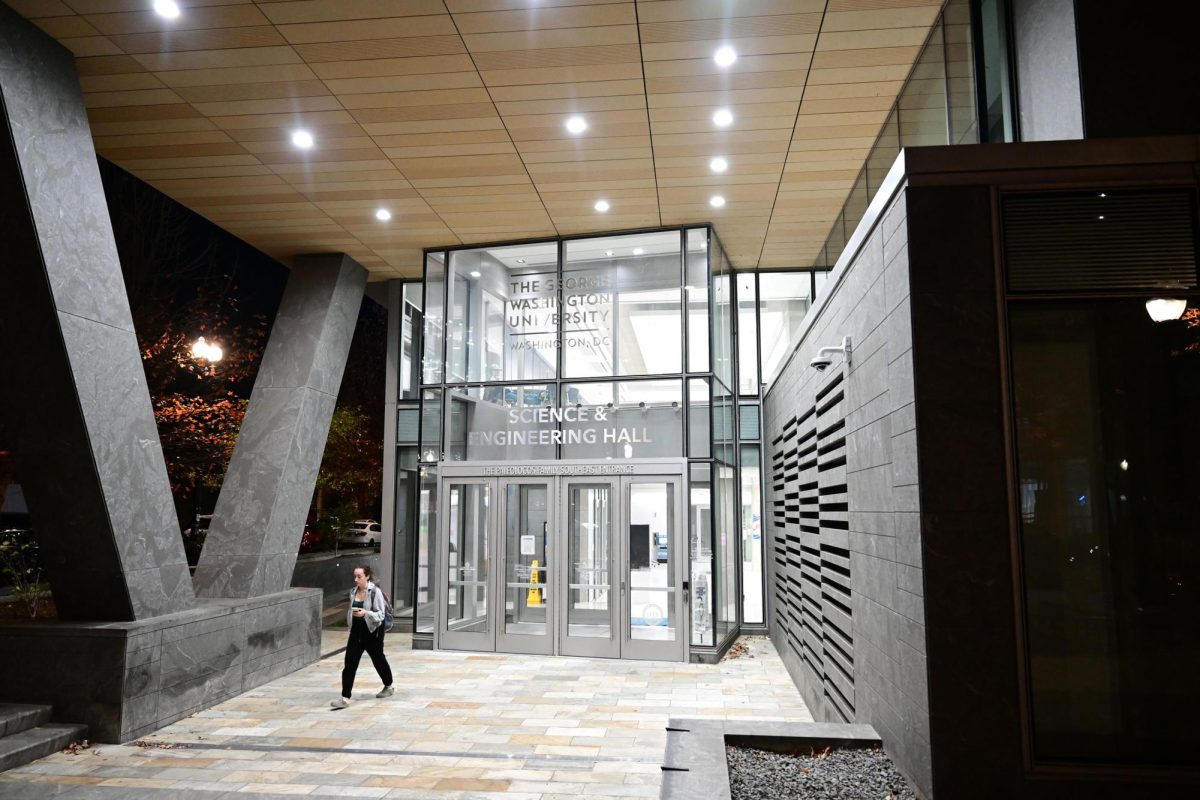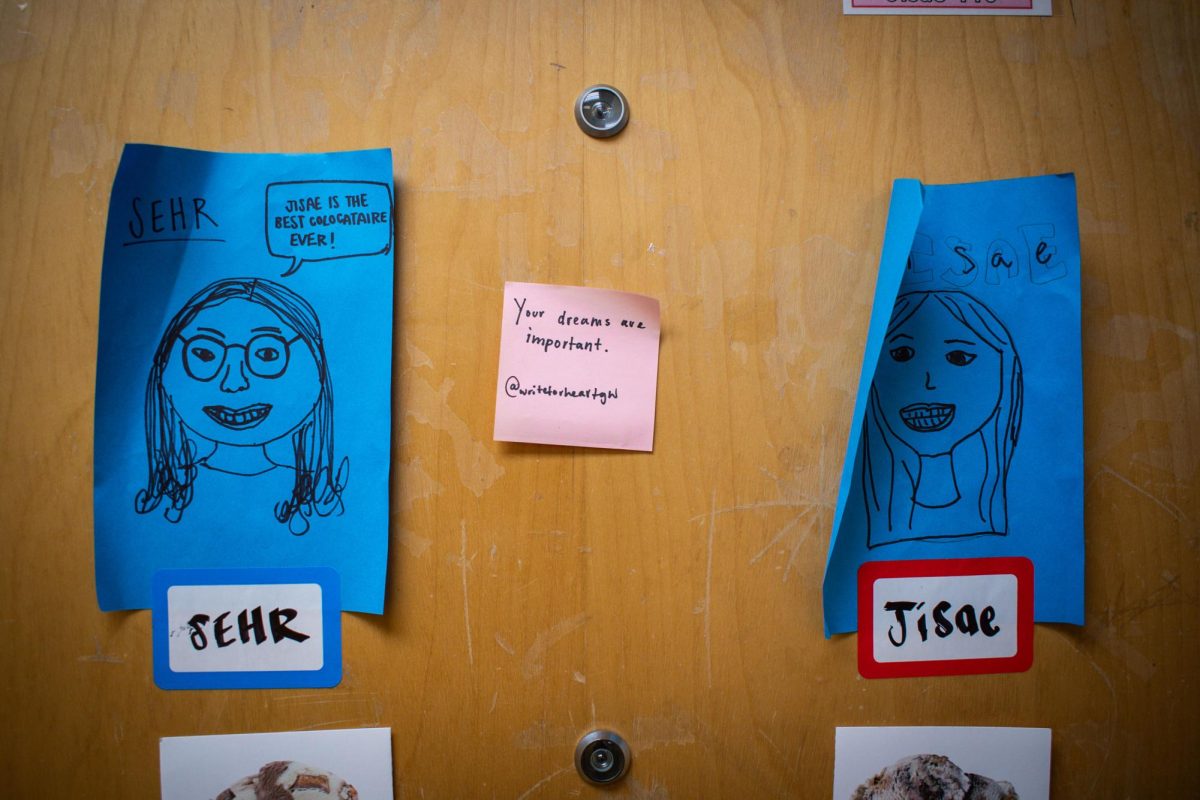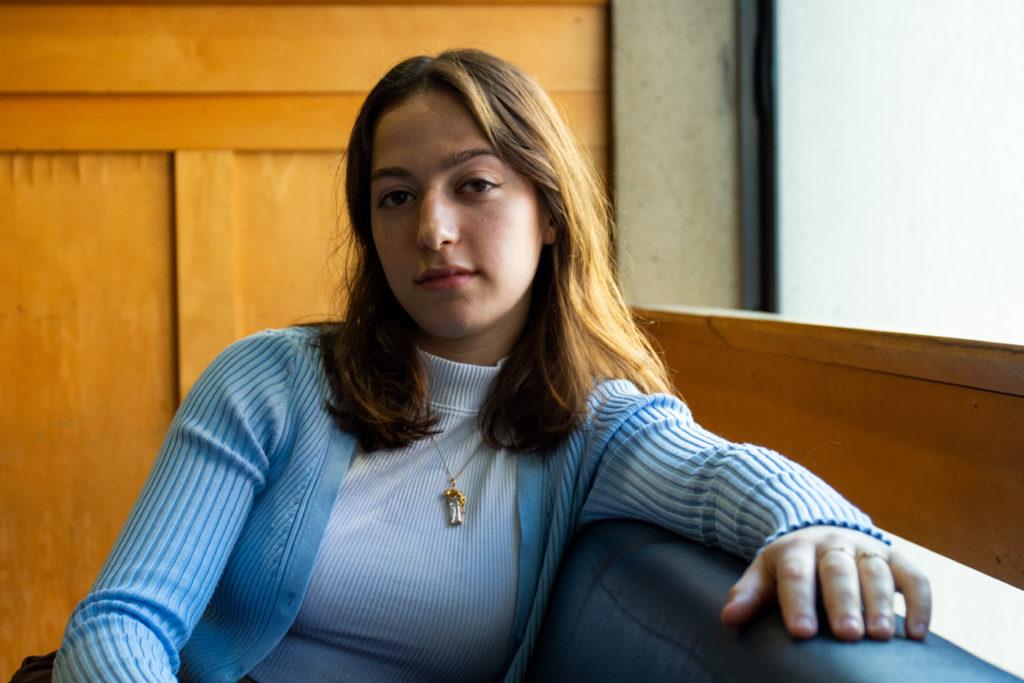Students attended a zero-waste sustainability event Thursday to celebrate Earth Day and educate students on implementing sustainable practices in their daily lives.
[gwh_image id=”1187841″ credit=”Karson Meyerson | Photographer” align=”right” size=”embedded-img”][/gwh_image]
More than 400 students attended Eco-Bash, an event including campus and local environmental organizations in the University Yard which featured a petting zoo of sheep, rock-climbing wall, planter-making workshop and vegan treats to teach students zero-waste principles. Eco-Reps, a collection of Sustainable GW student leaders who encourage sustainable lifestyle practices and put on the event, said the event’s efforts align with the United Nations Sustainable Development Goals, 17 global objectives, like eliminating hunger, poverty and clean water, to improve quality of life worldwide while preserving the planet.
Off-campus partners like the D.C. Department of Energy and FRESHFARM Markets, University offices like GW Dining and GW Campus Recreation and student organizations like GW Birds and GW TRAiLS offered activities to engage and inform students about the steps they can take to enhance the sustainability of the Earth.
Sophomore Sofie Lindberg, the director of programs for Eco-Reps, said she hopes to attract all students regardless of their current knowledge of sustainability because there is always something more to learn. She said the event aimed to show students the “intersection” of implementing sustainable practices and enjoyable experiences.
“We wanted this to be not only an educational experience, but we wanted something that was fun, that people could come to no matter where they are in sustainability,” Lindberg said.
Lindberg said participating groups were told not to use single-use plastics to accomplish the event’s goal of producing as little waste as possible to set an example for students to limit their own waste production. She said Eco-Reps used recycled cardboard from residence halls for the organization’s sign at the event to demonstrate to students that it’s possible to throw an event like Eco-Bash without producing much waste.
“At least for me, and for our Eco-reps, a lot of what our mission is is showing people that ‘Hey, even the small things like having an event at GW that are zero waste helps actually offset that environmental impact’ and says what we’re really trying to create a culture of here,” Lindberg said.
The GroW Garden brought one of the largest student attractions to the event – a mini petting zoo with at least eight sheep, including two lambs. GroW Garden managers, junior Liana Friedman, majoring in political science and organizational sciences, and senior Nick Smaldone, majoring in international environmental studies and English, said they brought the sheep to demonstrate to students what composting looks like first hand as sheep droppings act as a natural fertilizer.
[gwh_image id=”1187840″ credit=”Karson Meyerson | Photographer” align=”none” size=”embedded-img”][/gwh_image]
“It’s one thing to just compost the weeds that we pick from the garden and send them out to be composted, and it’s another thing to have them be fast version composted by the sheep, and then allow us to use the minerals and things from the weeds to get into our own soil and feed our own plants,” Friedman said.
GW TRAiLS, an outdoor adventure and leadership program committed to connecting students to nature, taught students about different types of knots and told them about the actions the organization takes to promote sustainability, like their “Leave No Trace” initiative – a program which seeks to end littering and foster respect for the Earth – at their booth.
“We are an outdoor organization, so we want the earth to be as clean and sustainable as possible,” freshman Kalea Wilson, a member of GW TRAiLS, said. “By promoting ideas and events where we focus on things that are green and help sustain the earth’s health, it helps us do our job, because then we can take people out into that beautiful Earth.”
Mandy Long, a senior majoring in mechanical engineering, manned a booth for the LeBlanc Lab – which pursues research on developing environmentally-friendly ways to harvest energy – and said the lab centers on implementing infrastructure for renewable resources in a way that does not harm the environment.
The University currently harvests its energy using both renewable and nonrenewable energy sources including its own heat and power plant in Ross Hall and solar panels on various buildings on the Foggy Bottom campus including the Smith Center. Long said she hopes the University will switch completely to sustainable energy sources within the next 15 to 20 years because GW’s urban campus provides more opportunity for electrification than rural areas.
“We have a lot of infrastructure already in place, and then as we’re going through, we can look into city planning and say, where do we see infrastructure that needs to be replaced? And then when we go to replace it, we replace it with better options,” Long said.
Freshman Fayrouz Enany, majoring in public health, said she attended the event after finishing class and learned about how to “save the planet.” Enany said the event encouraged her to implement sustainable practices into her daily life, including using more reusable straws.
“I think it’s definitely extremely important because not only does global warming and environmental change have really bad effects on our health, but it has really bad effects on the planet and the future,” Enany said.








